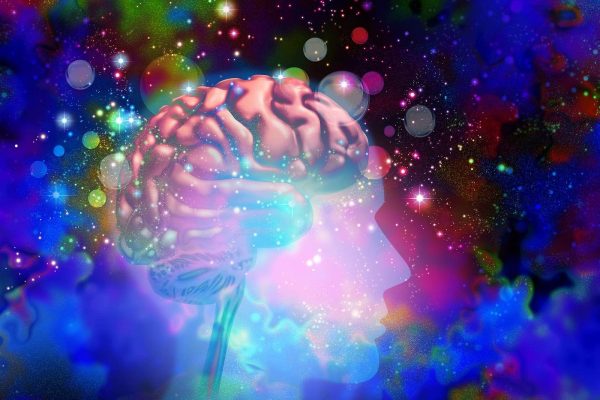If you have a brain injury or illness, your physician or neurologist may refer you to a neuropsychologist. These specialists can help diagnose your condition, study how it affects your behavior, mood, and thinking, and recommend treatment.
A neuropsychologist conducts a series of tests and examinations called neurophysiological evaluations to check how your brain, mind, and body are working together. This can help create an effective treatment plan and monitor your condition during recovery.
While neuropsychologists aren’t medical doctors, they are an integral part of the healthcare team that helps patients recover from brain traumas, injuries, and diseases.
Let’s take a closer look at what neuropsychologists do and when you may need to seek their expertise.
What is a neuropsychologist?
A neurologist is a psychologist with a doctorate degree who studies how injuries and illnesses of the brain and the nervous system affect the patient’s emotions and behavior.
As noted nere, neuropsychology is the study of the relationship between a person’s cognitive skills and behavior in relation to the brain and nervous system. These experts can help diagnose and treat patients with such diseases as Alzheimer’s and autism.
Two types of neuropsychologists are:
- Cognitive neuropsychologists – these specialists focus on research that improves the field of neuropsychology and helps discover new diagnostics and treatment tactics and instruments. In short, they conduct research but rarely work with patients.
- Clinical neuropsychologists – these specialists work with patients who need assistance diagnosing or treating a disorder related to cognitive functions, brain operations, and emotional behavior. They perform tests, help with diagnosis, and work together with the rest of the clinical team to improve the chances of recovery.
Clinical neuropsychologists can specialize in different age groups. For example, some focus on pediatrics while others work with the elderly population.
It’s important to note that while neuropsychology focuses on both neurology and psychology, it’s a subspecialty of psychology, not neurology.
With your condition in mind, neuropsychologists can evaluate your:
- Intellect
- Language skills
- Mood fluctuations
- Learning abilities
- Reasoning
- Problem-solving skills
- Sensory-motor skills
By understanding how they change over time, these experts can offer a more precise diagnosis and assist the rest of the team with designing an effective treatment.
What does a neuropsychologist do?
Clinical neuropsychologists use their knowledge, practice, and test results to diagnose a condition. They arrange neuropsychological assessment to determine how the patient’s brain is functioning. If the patient is having difficulties performing everyday tasks, these tests help determine the reason behind them.
Patients with brain injuries and illnesses can feel different from what they are used to. A neuropsychologist uses their expertise and experience to figure out why this is happening. Even if there isn’t a treatment for a condition (e.g., Alzheimer’s or Parkinson’s), a neuropsychologist can determine a course of supportive measures that can alleviate the symptoms and increase a patient’s quality of life.
Neuropsychologists are part of larger medical teams that deal with brain injuries and diseases. They can work with neurologists, neurosurgeons, and psychiatrists in different settings, including:
- Hospitals
- Rehab clinics
- Private practices
Sometimes, neuropsychologists can work with law enforcement teams to provide consultations. They can also work in schools to study brain diseases and disorders in children and adolescents.
What does a neuropsychologist diagnose and treat?
Common conditions that neuropsychologists can help treat include:
- Alzheimer’s disease
- Parkinson’s disease
- Dementia
- Multiple sclerosis autism
- Learning and attention disorders
- Epilepsy
- Strokes
- Traumatic brain injury
During the evaluation, neuropsychologists can approach your condition from different angles by:
- Studying your medical history
- Conducting a neuropsychological examination
- Analyzing data and findings
The examination can include questions, written tests, computer tests, puzzles, and other assessments.
Why would you see a neuropsychologist?
Your physician or neurologist can refer you to a neuropsychologist if you are experiencing such symptoms as:
- Memory problems
- Trouble focusing
- Problems with reasoning
- Changes in personality
- Issues with awareness
- Changes in perception
- Problems with speaking and comprehension
These symptoms are often related to head injuries, brain diseases, and exposure to toxins. However, the cause can be unknown. In this case, a neuropsychologist can help diagnose the issue. This specialist investigates your medical history, evaluates the symptoms, and runs tests to find out what the underlying cause of your symptoms is.
While neurologists also help with the same problems and assist with diagnosing the condition, they are mostly focusing on the physical and biological functions of the brain. They run and evaluate such imaging tests as MRI, PET scans, EEG, and CAT scans. However, these tests don’t always provide the data necessary to make a precise diagnosis. That’s when neurologists refer patients to neuropsychologists.
What questions does a neuropsychologist ask?
A neuropsychologist can ask you several types of questions:
- Medical history – the specialist can ask you about your medical history, chronic diseases, childhood diseases, accidents, injuries, and surgeries.
- Behavioral history – you may need to answer questions about the way your behavior has changed in recent years. You may not notice the changes, but the neuropsychologist’s questions can help you remember the necessary information.
- Mood and emotions – you will likely need to answer questions about your emotional condition and the way your mood has changed over the years or in recent months.
After answering questions, you would have to take some tests to help the neuropsychologist evaluate your condition and understand your brain’s strengths and weaknesses.
The Role of a Neuropsychologist in Comprehensive Therapy
A neuropsychologist is an important part of a medical team that deals with brain injuries, diseases, and traumas. They can help make a correct diagnosis and provide recommendations that ease the symptoms and improve the patient’s quality of life.
These experts work side by side with neurologists, neurosurgeons, and mental health specialists to ensure a correct diagnosis and come up with comprehensive treatment.





